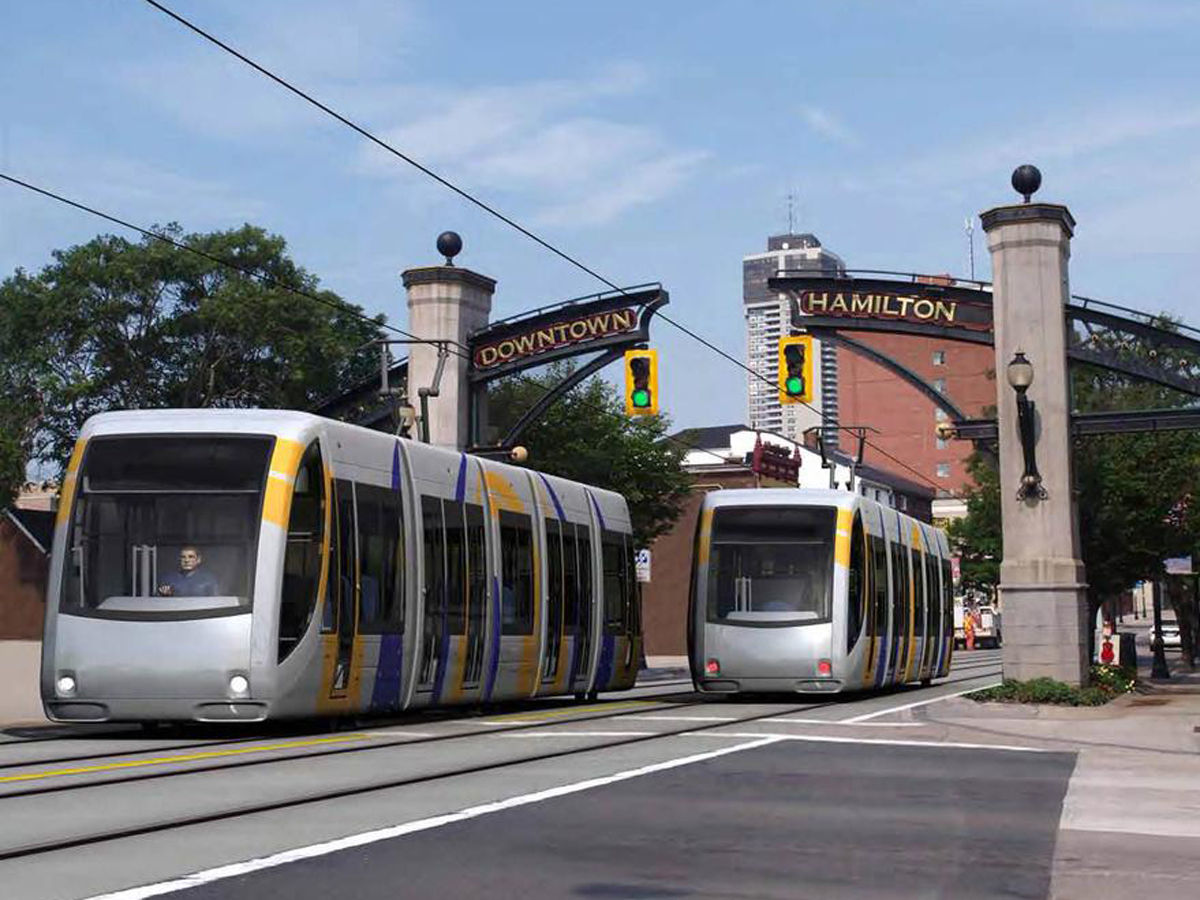Mayor Fred Eisenberger owns a condo unit at 181 James Street North. This does not put him into a conflict of interest regarding Hamilton’s proposed light rail transit project.
Eisenberger publicly shared he purchased a condo in the building during numerous Council meetings. The Mayor continues to reside in his primary residence in East Hamilton near the Red Hill Valley.
John Best of the Bay Observer is trying to advance the argument that Eisenberger’s land holdings put him in a conflict of interest and he should recuse himself from voting on the LRT.
Best is a strong opponent of Light Rail Transit and was the Executive Director of the Southern Ontario Gateway Council from 2005 to 2017 while also publishing The Bay Observer. The Gateway Council brings together aviation, trucking, railway, and government on transportation and logistics issues.
Municipal Conflict of Interest Act and LRT
Members of municipal councils are not in a conflict of interest to vote upon the LRT, even if they own property along the line.
In Doug Craig v. Her Majestry the Queen in Right of Ontario, 2013 ONSC 5349, the Ontario Superior Court ruled Cambridge Mayor Doug Craig could participate in discussion and votes regarding LRT because his interest was “so remote or insignificant in its nature that it cannot reasonably be regarded as likely to influence” his decisions.
Mayor Craig’s son owned a residential property across the street from the main transit terminal in Cambridge. Under the Municipal Conflict of Interest Act, the Mayor’s son owning property creates a potential conflict of interest. Mayor Craig sought a declaration by the Court that the interest was insignificant.
In Waterloo region, nearly 40% of the councillors declared conflicts and recused themselves from voting on the LRT.
During Waterloo’s LRT debate, “more than 40% of the relevant councillors declared conflicts and were unable to vote on this important issue” wrote municipal law lawyer Eric Davis in a April 2012 brief regarding the MCIA and LRT.
The reasons declared ranged “from owning property near the proposed rail line to being an employee of one of the local universities which might benefit from the creation of a light rail transit system what would be accessible on or near campus”.
In the Waterloo declarations, many experts were quoted at the time stating these were not conflicts under the MCIA. The Craig case ruling effectively settled the matter.
When does property ownership become a conflict? As is always the case with the MCIA, it depends.
Would Eisenberger owning multiple units at 181 James Street North trigger a conflict? No, the difference LRT will make to value of this specific property is insignificant – its value is driven by proximity to GO Stations and being in the heart of a vibrant walkable district.
If the properties were, say across from Eastgate Square, this would be a different discussion. Even then, a small holding is unlikely to raise to being an conflict.
The practical rule for municipal politicians regarding potential conflicts is to get clearance from their local Integrity Commissioner.
CORRECTIVE NOTE: The first version of this post took at face-value Best’s statement that his registry search found Eisenberger owns three units. The sections discussing this have been removed as they are not relevant.
On Twitter, Matt Van Huizen explains that a single condo unit can have three ownership titles with one each for the unit, storage, and parking space.


The whole “conflict of interest” argument is a red herring, both in this case and that of the Waterloo LRT issue. By definition, considering the scale of both the Waterloo LRT and the proposed B-Line in Hamilton, it is feasible that many, many council members could reasonably be said to either own or be related to people who own property “close” to the line. As mentioned, only in the case of a substantial holding directly along the route (which none involved have) would there be any grounds for concern.
Undoubtedly, in the case of Waterloo’s absentee council voters, their choice was more political cover than any real concern over any potential conflict.
At any rate, the real irony with the conflict of interest argument among LRT detractors is that such an argument is in and of itself an admission of defeat. “You stand to benefit because the LRT will revitalize the city and property values along the line will rise” is tantamount to agreeing with the pro-LRT side. These people are simply making the argument easier for the other side (pro-LRT).
Finally, something both sides can agree on!!!